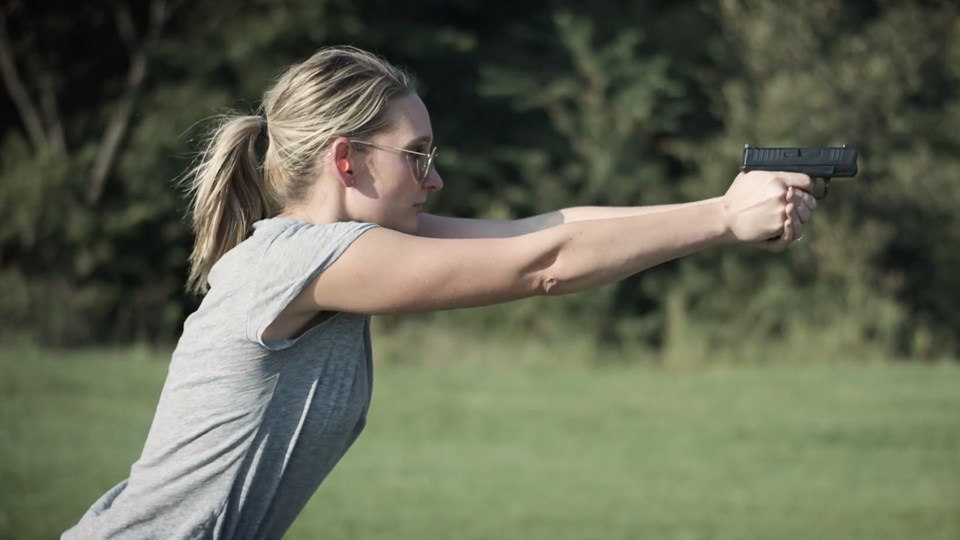Selecting the right firearm is a deeply personal decision, influenced by various factors including the shooter’s experience, intended use, and personal preferences. Whether for sport, hunting, self-defense, or collecting, the process of choosing the best gun requires careful consideration of several key aspects. Here our aim to guide prospective gun owners through this decision-making process.

Understanding the Purpose
The first step in selecting a gun is identifying its primary use. Different firearms are designed for specific purposes, and understanding this is crucial in making the right choice.
- Sport Shooting and Competitions: For target shooting and competitions, accuracy and precision are paramount. Handguns like the .22 caliber pistols or rifles are popular choices due to their low recoil and precision. Competitive shooters might prefer specialized firearms like precision rifles or custom competition pistols.
- Hunting: The type of game being hunted greatly influences the choice of firearm. Small game can be effectively hunted with .22 caliber rifles, while larger game like deer or bear requires more powerful rifles like the .308 or .30-06. For bird hunting, shotguns are the norm, with options like the Stoeger M3000 being a versatile and reliable choice.
- Self-Defense: For home defense, shotguns and handguns are commonly chosen. Shotguns are effective due to their stopping power and wide shot spread. Handguns are preferred for their ease of handling and storage. Models like the 9mm pistol are popular for their balance of power and manageability.
- Collection and Historical Interest: Collectors might be interested in historical firearms, unique designs, or limited editions. The value of these guns often comes from their historical significance, craftsmanship, and rarity.
Considering the Shooter’s Experience and Comfort
A gun should be a natural extension of the shooter. This is determined by the shooter’s physical attributes, experience level, and comfort with the firearm.
- Physical Attributes: The size and weight of the firearm should match the shooter’s stature. A gun that’s too heavy or with a grip too large can be difficult to handle effectively.
- Experience Level: Beginners might start with lower caliber firearms due to their reduced recoil and ease of handling. As experience grows, they may move to more powerful guns.
- Comfort and Ergonomics: The gun should feel comfortable in hand. The controls (safety, trigger, magazine release) should be easily accessible. Ergonomics play a crucial role in shooting accuracy and safety.
Analyzing Gun Types and Features
Understanding different types of guns and their features is crucial in making an informed choice.
- Handguns: These are small, portable, and suitable for self-defense and sport shooting. They come in various calibers and styles, including revolvers and semi-automatic pistols.
- Rifles: Designed for precision, rifles are ideal for hunting and long-range shooting. They range from bolt-action for hunting to semi-automatic for sport shooting.
- Shotguns: Versatile and powerful, shotguns are used for hunting, sport shooting, and home defense. They vary in gauge size, with common choices being 12-gauge and 20-gauge.
- Special Features: Features like adjustable stocks, scopes, and grips can enhance the shooting experience. However, they should be chosen based on necessity rather than aesthetics.
Legal and Safety Considerations
Gun ownership comes with legal responsibilities and safety requirements.
- Understanding Local Laws: Gun laws vary significantly by region. Prospective owners should familiarize themselves with local laws regarding ownership, carry permits, and use.
- Safety Training: Proper training is essential. New owners should undertake safety courses to learn safe handling, storage, and usage of firearms.
- Secure Storage: Guns should be stored securely to prevent unauthorized access, particularly in homes with children.
Where to Buy and Seek Advice
Purchasing a firearm from a reputable dealer ensures legality and quality. Gun shops, sporting goods stores, and gun shows are common places to find a wide selection. It’s also beneficial to seek advice from experienced shooters, join local shooting clubs, or participate in online forums for insights and recommendations.
Conclusion:
Choosing the right gun is a complex process that requires careful thought and research. By considering the intended use, the shooter’s experience and comfort, understanding the different types of guns and their features, and adhering to legal and safety norms, one can make an informed decision. Remember, the best gun for any shooter is one that fits their needs, feels right in their hands, and can be used safely and effectively.